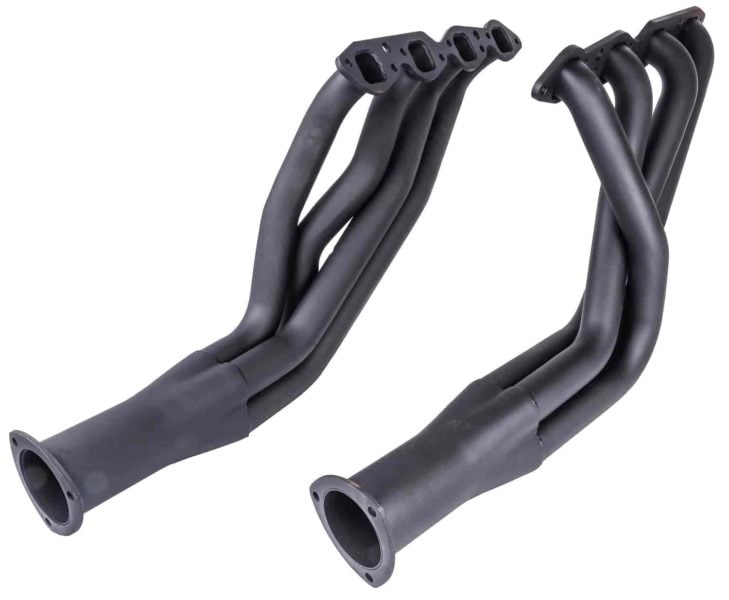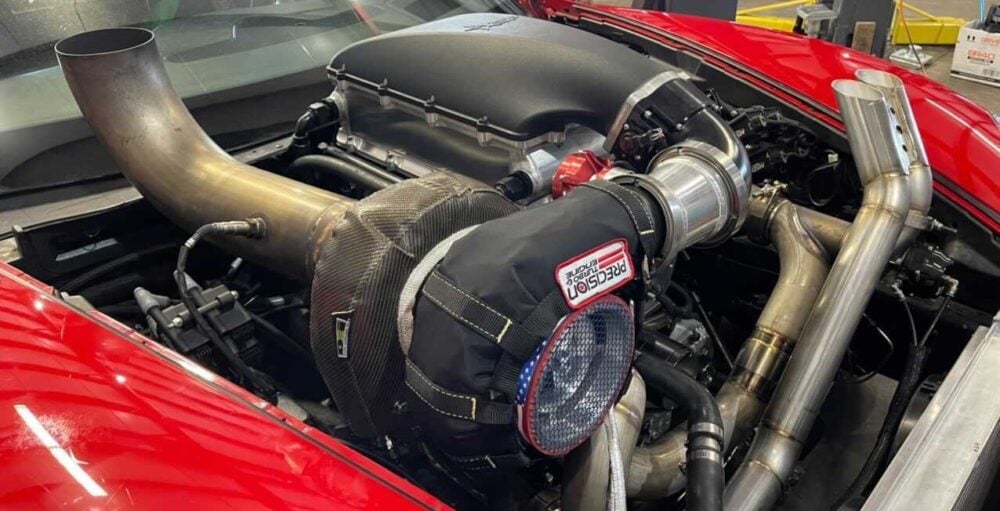
There's no secret that exhaust systems are crucial for your car's health and operation. Not only does a new exhaust change the sound of your car and improve its performance, but it also keeps you safe. Harmful gases from the combustion process and unburned fuel exits from the tailpipe, away from areas it can get trapped and seep into the passenger compartment.
But a new exhaust, whether an OEM replacement or a high-performance upgrade, can reduce how much gas you burn as you drive. Sure, it’s not the main reason you’re exploring the possibility of installing new mufflers, an X-pipe, or headers, but it’s another benefit you can use to convince your spouse it’s necessary.
Here’s what you need to know about how a new exhaust system benefits fuel efficiency and other reasons to get one for your ride.
What Does Fuel Efficiency Mean?
Fuel efficiency means the measure of the distance a motor vehicle covers with a specific fuel volume. Wondering how you would measure your car's fuel efficiency? You measure the distance your car can go by consuming or using a set fuel amount. The standard unit of this measurement in the US is miles per gallon (MPG).
The rule of thumb is that the further you can go on each gallon of fuel, the better your car's fuel economy. It really only applies to when your car is in motion, and for show cars that idle a lot, it’s a very deceiving metric.
How Does It Affect Your Exhaust System?
The exhaust system in your car is more than just a tube letting out burnt gas. Did you know that it is one of the critical factors affecting the performance of your car? A muffler quiets your car's exhaust to acceptable noise levels, absorbing the noise energy but the efficiency in which the gases can escape from the engine improve both performance and fuel economy. It doesn’t change how much gas your car consumes, but it improves how efficient the power it generates can be used.
Does a Muffler Affect Gas Mileage?
A performance muffler has the potential to improve your vehicle's efficiency. Most vehicles come with restrictive factory exhaust systems, which are designed for quiet operation. Even so, better airflow by high-quality aftermarket mufflers is a benefit that they offer. It affects a vehicle’s mileage since it doesn’t restrict the engine as much.
What that means, practically speaking, is that the engine gets to breathe easier. Yet another way a high-quality aftermarket muffler positively affects a vehicle’s gas mileage is by getting rid of or largely minimizing the backpressure to the engine. Backpressure is reduced because mufflers enable gases to exit a vehicle quicker than they would do with a restrictive exhaust system. With the backpressure reduced, the wasted energy in a vehicle’s exhaust system is in turn reduced, resulting in better gas mileage for a vehicle.
Let’s be honest here. A new exhaust system will cost hundreds of dollars, and perhaps more than a thousand, and that’s just for the parts. With fuel savings of just 1 to 3% as a realistic figure, it’s not going to ‘pay off’ in fuel savings – ever. It’s still an incredibly beneficial upgrade to make, but you need to look at the whole picture rather than just gas mileage.
Benefits of a New Exhaust System
You may be considering a new exhaust system, and that’s a great choice for a number of reasons. A new exhaust system will boost the overall value, performance, and fuel efficiency of your car.
Benefits of a new exhaust system include:
- The ability to rev the engine up faster
- Better fuel economy due to reduced backpressure
- A fantastic rumble you’ll love to hear
- Longer lasting engine operation
Get a great deal on the best exhaust for fuel economy at JEGS. Enjoy a wide selection of high-performance mufflers and performance exhaust tips, and get advice on the best products that suit your car's needs.





